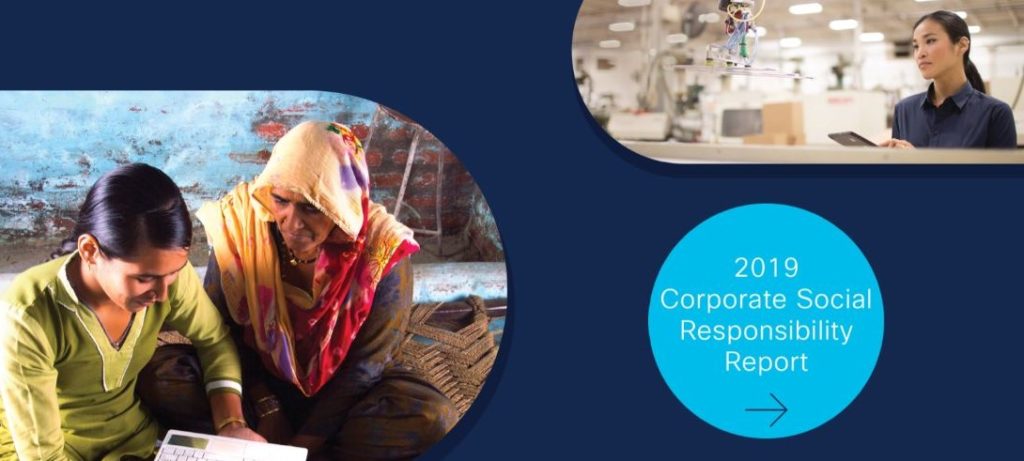The following is an excerpt from the 2019 CSR report.
A company’s culture can be its greatest asset. Unfortunately, you don’t have to look far to find companies where culture isn’t working. Places with problems like unethical behavior, discrimination, and harassment. And employees who are afraid to speak their mind.
Cisco aims to help set a new standard, reinforcing the values and behaviors that make this a great place to work. In FY19, we built upon our solid foundation and started defining culture using a new framework. We call it “Conscious Culture.” It has three components:
- An inclusive, diverse environment that positively impacts people, society, and the planet.
- The typical traits of our culture, such as our unique beliefs, behaviors, and principles.
- The everyday interactions people have with their leaders and colleagues.
Many companies focus on only one of these three aspects of culture. Bringing all three pieces together is what sets Cisco apart. And this culture is “conscious”—aware and accountable for what’s working, what’s not, and how we can improve. When we see or experience something, like harassment by a manager or a violation of our Code of Conduct, we say something. Employees can protect our culture by sharing concerns with our Ethics Office. As part of Conscious Culture’s debut, we shared metrics internally regarding concerns our employees reported—issues like bullying and other negative behavior. We’ll continue to do so every six months, as well as sharing how concerns are handled. But Conscious Culture is more than addressing concerns. It affects every aspect of how our people work and interact. Now, business functions across Cisco are determining how to apply Conscious Culture to their practices. As this journey progresses, the result will be better employee engagement. And in turn, better experiences for our customers and communities.
One example of the implementation of Conscious Culture at Cisco is our no shame, no stigma campaign around mental health.
Over the past year, Cisco has made it a priority to not only end the taboo against talking about mental health but encourage people to ask for help. It all started with an email. In 2018, in the face of growing concerns about mental health in society, Cisco CEO Chuck Robbins sent an email to all Cisco employees. In it, he expressed Cisco’s concern for those who are struggling, sharing that no one needs to go it alone.
The response was overwhelming. Robbins received more than 100 replies from employees saying thanks and sharing stories of themselves and their loved ones. Since then, even more people have courageously spoken about personal struggles in company blog posts and the Cisco Beat.
This response has awakened us to an issue that wasn’t being addressed. Consider the statistics: about one in five U.S. adults lives with a mental health condition. Yet many people are still uncomfortable talking about these issues. Cisco is breaking the silence. We want everyone to know that it’s okay to not be okay. By decreasing the stigma and broadening the resources we offer, we hope to encourage people to get the help they need. And change the conversation about mental health across our industry.
Download the full 2019 CSR report:



CONNECT WITH US